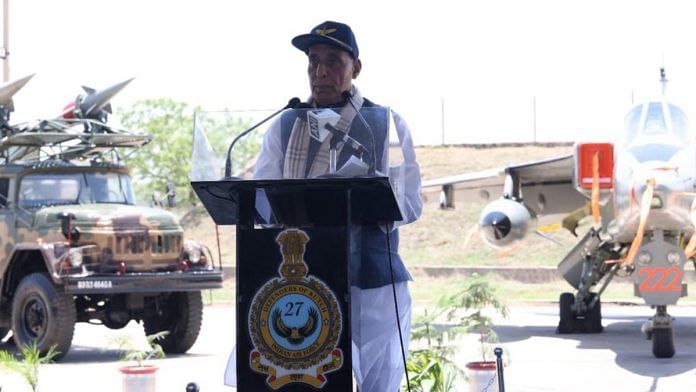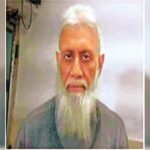The defence minister’s speech comes after India and Pakistan agreed to halt fighting Saturday. On the intervening night of 6-7 May, India launched Operation Sindoor, striking nine terror complexes in Pakistan and Pakistan-occupied Kashmir in response to the deadly Pahalgam attack on 22 April. In the following days, Pakistan sent hundreds of projectiles, including drones and loitering munitions, into India. Violations along the Line of Control were also reported.
The “on probation,” contingent on its behavior, Singh added. “If there is any disturbance, harshest punishment will be given.”
Air Chief Marshal A.P. Singh, chief of the air staff, and other senior Indian Air Force officials were present during the address.
LIVE NOW | Raksha Mantri Shri interacts with the brave soldiers of the Indian Air Force at Air Force Station, Bhuj. Saluting their unwavering dedication and service to the nation. 🇮🇳
— Ministry of Defence, Government of India (@SpokespersonMoD)
He further said International Monetary Fund (IMF) funding should not be used to reconstruct terror infrastructure, citing Pakistan’s government intention to give Rs 14 crore from its tax revenue to Jaish-e-Mohammed (JeM) head Masood Azhar and the announced financial assistance to rebuild the terror infrastructure Lashkar-e-Taiba (LeT) and JeM located in Muridke and Bahawalpur. India has said LeT was behind the Pahalgam attacks.
“Certainly, a large part of IMF’s one billion dollars assistance will be used to fund the terror infrastructure. Will this not be considered indirect funding by IMF, an international organisation?” he asked.
“Any financial assistance to Pakistan is no less than terror funding. The funds India gives to the IMF should not be used, directly or indirectly, to create terror infrastructure.”
Singh also talked about India’s growing self-reliance in defense manufacturing, from radar and missile systems to drones and counter-drone technologies. He praised the IAF’s precision airstrikes during Operation Sindoor, saying that terror camps were decimated within 23 minutes.
“When missiles were dropped inside the enemy territory, the world heard the echoes of India’s valour and might,” he added.
Paying homage to soldiers and civilians killed during the conflict, including recent casualties in Pahalgam, Singh said he had “witnessed the highest level of enthusiasm and patriotism” among the troops during visits to Srinagar and Bhuj.
“India’s borders are completely safe,” he asserted.
The minister highlighted the capabilities of India’s domestically developed BrahMos missile and DRDO-produced air defense systems such as Akash, calling them “impenetrable”.
He also reaffirmed the government’s commitment to equipping the armed forces with modern infrastructure and technology, stressing that India was transitioning from being an importer to an exporter of defense equipment.
“This is just the beginning. Bhuj has been witness to India’s victory over Pakistan in 1965, 1971—and now,” Singh said, calling it a “land of patriotism where soldiers stand tall with an unshakable resolve to protect national interests”.
“Together, we will completely eradicate terrorism from the region, and no one dares to cast an evil eye on the sovereignty of the nation,” he added.
(Edited by Sanya Mathur)








